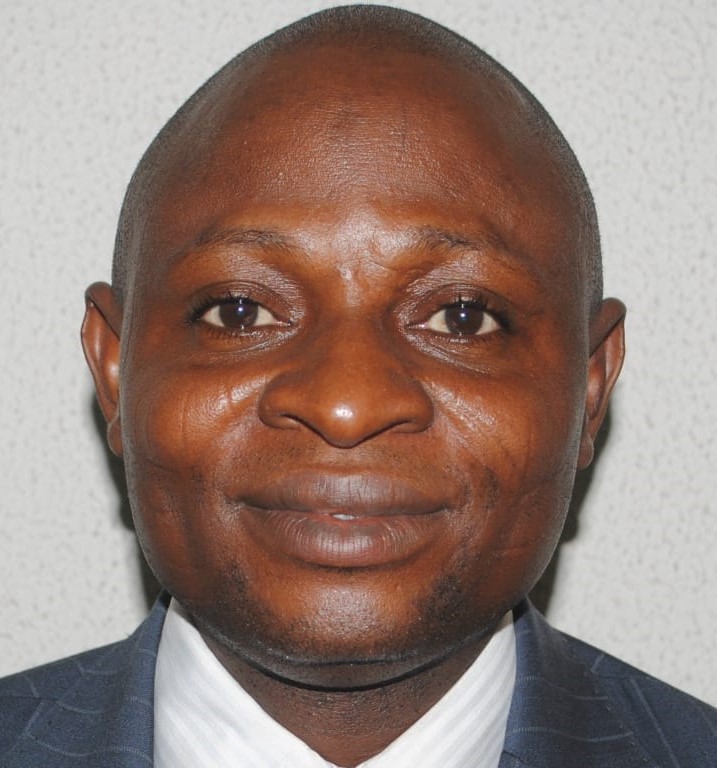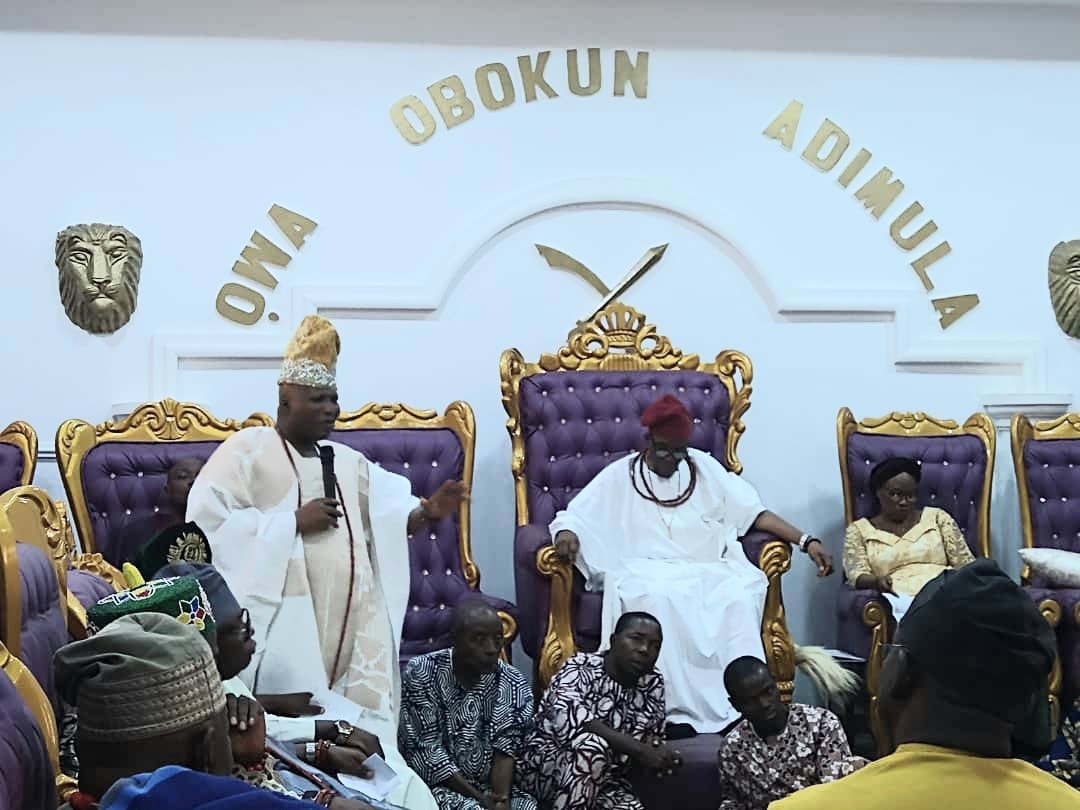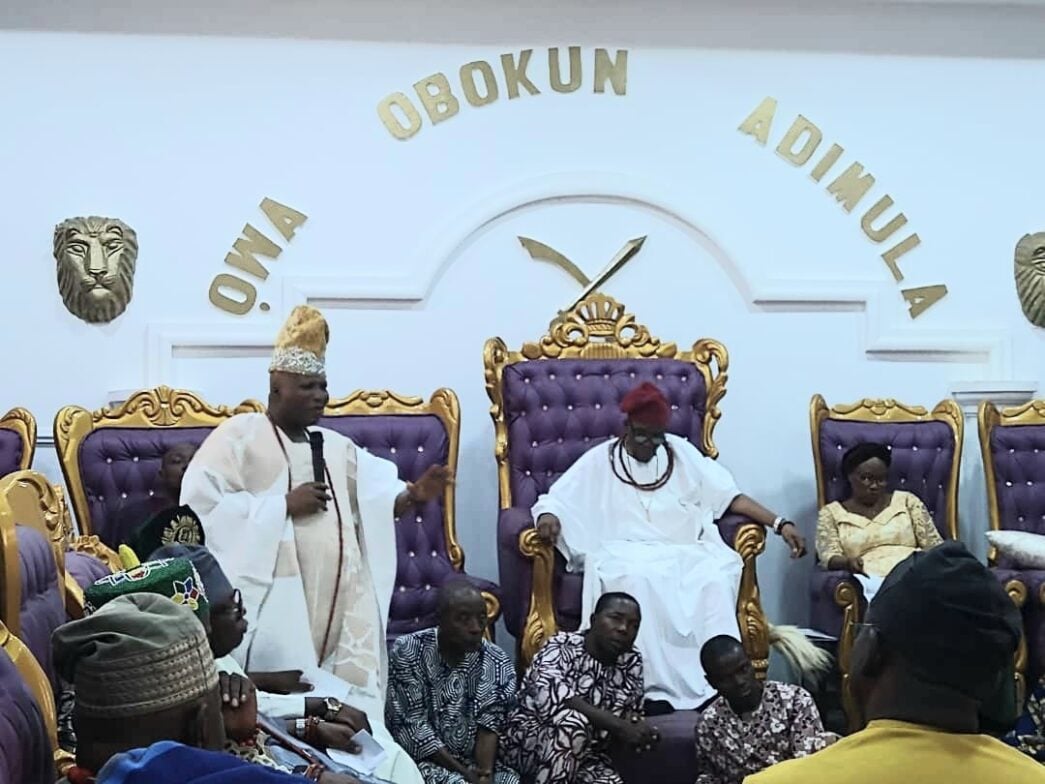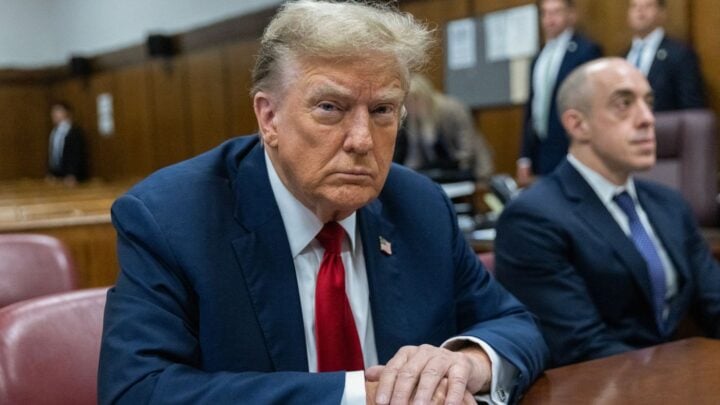The Ijesha kingmakers, Osun State’s Governor, Ademola Adeleke, and other stakeholders now have a delicate matter that they must handle carefully, dispassionately, and decisively – the selection of the new Owa Obokun of Ijesha land. The process of selecting the new king for the influential stool of the Adimula of Ijesha land is very significant to the overall peace not only for the Ijesha Kingdom but the overall peace in Yoruba land. Therefore, filling the vacant stool calls for extreme caution and uprightness in order to write their names in the golden section of Ijesha’s history.
The kingmakers and the Osun State Government in particular, must display the highest sense of responsibility, transparency, maturity, and emotional intelligence to handle this critical assignment that will happen in their own time. This may be the first time most of the Ijesha kingmakers will be handling the assignment of selection of a new king. But the same cannot be said of the state government. The kingmakers must therefore be conscious of their place in history and do the right thing by relying on laid-down principles and evidence of Ijesha history that is not in short supply to guide them.
As every Ijesha citizen is mourning the passing on of the erudite Oba Adekunle Aromolaran, the concern in measured tone, is the ability of the kingmakers and Osun State Government to get it right by allowing the process not to be tainted or influenced by any consideration other than the fact of history, tradition, and abundant evidence in the archives. The process that will lead to the choice of the new Obokun is as important as whoever will eventually emerge. The choice of the new Owa Obokun will be a litmus test for those who will play a key role in the emergence of the new king as history beckons on them. They must handle the process with fairness, justice, musing, and a high sense of responsibility. The process should not be turned into a mercantile but getting the right person to occupy the coveted office. This is the only way to avoid post-installation strive and litigation and not to reduce the new King to a mere political appointee and erode the influence associated with the stool for many centuries.
The stool of Owa Obokun in the Yoruba land is a very strategic and unique one and the new King for the Ijesha land must be qualified and meet the ancestral parameters, standards, and criteria of the office.
Advertisement
At the moment all eyes are on the Ijesha Kingmakers and Osun State Government as they are expected to play altruistic roles in selecting the new king. This is the least open and close-mouthed expectation of the Ijesha people at home and abroad. This however ordinarily should not be a difficult assignment for the 13-member kingmakers of the town and the Osun state government. There are impeccable records, oral evidence, government proclamations, and living witnesses to history which the kingmakers and the state government can rely on. He must be decisive and be a stickler.
By definition and their role, the Ijesha kingmakers are people of immense integrity with a deep sense of history. They should rise to defend their office and tradition on a lifetime sensitive assignment that destiny has thrust on them and which they may not have a repeat in their lifetime. The 13-member Ijesha Kingmakers are the six members of Agbanla or Agba Ijesa Council – Ọbaala of Ilesa, Ogboni of Ipole, Ogboni Ijebu Jesa, Ogboni of Ibokun, Ogboni of Ilesa, and Obaodo of Ilesa (The Chief Scribe of ljesaland); the four members of the Ààrẹ Council Composed – Ọdole of Ilesa, Risawe of Ilesa, Saloro of Ilesa, and Arapate of Ilesa; the third category is the three members of ĘLĘGBĘ, who are traditionally the military commanders, namely: Lejoka of Ilesa, Loro of Ilesa, and Lejofi of Ilesa.
As recently as 1957, a landmark declaration known as ‘Ijesha Chieftaincy Declaration of 1957’ was made which explicitly stated that the Owa Obokun of Ijesaland’s throne was agreed to be rotated among four ruling Dynasties. The four Dynasties were named after four prominent sons of Owa Atakunmosa who was renowned for his very effective administrative legacies in Ijesaland. The Dynasties are Biladu, Bilagbayo, Bilayiarere (the Dynasty of the late Oba Adekunle Aromolaran), and Bilaro Oluodo. In each of the Dynasties, there are also many Lineages called Idi-Igi (The Root) in Yoruba land.
Advertisement
By rotation and all available evidence of history and for fairness and justice, the next Dynasty to produce the Owa Obokun is the Bilaro Oluodo Dynasty. In the Bilaro Oluodo Dynasty, however, these are the following Lineages, not in order of rotation or seniority but that of linkage to Bilaro Oluodo. The Lineages are Ofokutu, Haastrup, Arimoro, and Fajemisin. Among these also, the Haastrup Lineage has produced Owa Obokun on two (2) occasions. First, HRM Fredrick Kumokun Adedeji Haastrup, Ajimoko 1 (1896-1901) and second, HRM Alexandra Adejumola Haastrup, Ajimoko II (1942 – 1954). In the interest of equity, having produced two Owa Obokuns in recent history, the Haastrup Lineage should not present a candidate for the stool. It should be the turn of the other three lineages of the Bilaro Oluodo Dynasty. The children, grandchildren, and great-grandchildren of these other lineages have matured and now have eminently qualified individuals who were not available in the instances of Bilaro opportunities in the past (1896 and 1942). It is naturally their turn to produce the next Owa Obokun.
At this time, Ijesa people should not be aloof and incurious. They should rise to defend their royalty now and resist any attempt of external influence to determine who becomes their royal father. It is worth noting that Owa Obokun Adimula is never an Oba but an “Orisa” (Deity). He is a paramount Ruler “Oba ti o n gba Idobale awon Oba” (The King who other Kings prostrate to his admiration).
Consequently, it would be a gross miscalculation, brazen injustice, denigration, abuse of authority, and a generational disservice to the Ijeshas for any stakeholder, especially the government to compromise the selection of the new Owa Obokun or impose any candidate on the altar of compromise, personal aggrandizement, anecdotal and indefensible consideration. In line with the long tradition, the process of appointing a new Owa Obokun should be by the laid down principles of the town’s ancestors and the kingmakers must be allowed to do their jobs without hindrances. It is expected that the Ifa oracle will choose an appointee from the right lineage and the state government will perform the ceremonial blessing according to the Chieftaincy Act.
Governor Ademola Adeleke of Osun State cannot afford to subvert the course of history. He has to do the right thing to earn honour in the history of Ijesha land. He cannot afford to fail in this epochal assignment. He must have learned from history, especially the crisis that engulfed three towns in his state – Igbajo, Iree, and Ikirun – following the sacking of the towns’ traditional rulers in February this year. The Governor must be impartial, consult widely, encourage the kingmakers to be independent, and rely on the available evidence and documents for infallible judgment. This is the only path to making the selection process non-tempestuous.
Advertisement
What will make this critical assignment simple for the kingmakers and Osun State Government is doing what can be supported by history, defended by evidence, morally justifiable, and legally compliant.
The Ijesha kingmakers and Governor Adeleke have a sacred duty to sustain the long-built reputation of the emergence of an Owa Obokun, respect the wishes of Ijesha people, and honour the memory of the past kings in the land by selecting the right candidate who has the energy, zeal, exposure, proven track records and other known parameters that can put Ijesha land on the global map.
Isamotu, a public commentator, writes from Lagos.
Advertisement
Views expressed by contributors are strictly personal and not of TheCable.
Add a comment












